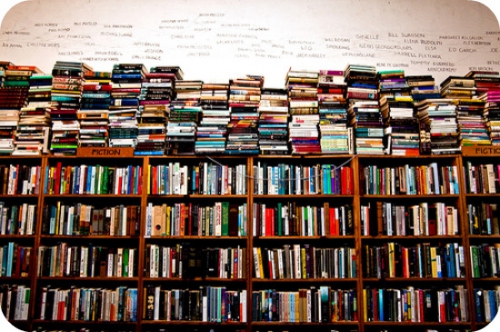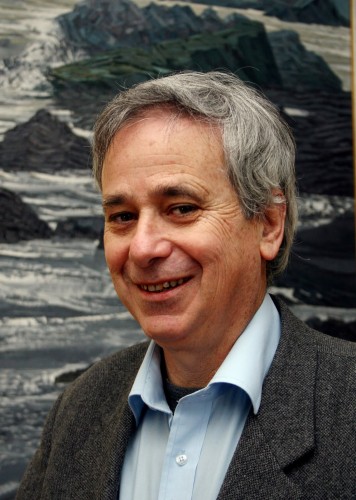vendredi, 06 mars 2015
Book Reviews from http://www.atimes.com

Book Reviews from http://www.atimes.com
To read full review, click on title
| Pakistan's proclivity for war The Warrior State: Pakistan in the Contemporary World by T V Paul Author T V Paul adds to the numerous unflattering descriptions of Pakistan with his depiction of a "warrior state" whose security forces have outgrown all other institutions and activities and where radical Islamization and its attendant obscurantism have been the consequences of state policy. His explanation for why this continues is elaborate and thought-provoking. - Ehsan Ahrari (Jul 28, '14) |
 |
| The US-Pakistan ties that bind No Exit from Pakistan: America's Tortured Relationship with Islamabad by Daniel S Markey The author argues that even as Pakistanis grow increasingly hostile to the United States', America's interests in South Asia, Central Asia and the Middle East mean that Washington can ill-afford to disengage from Pakistan. Maneuvers by the Obama administration such as managing anti-Americanism sentiment by keeping a lower profile ring true with the policy prescriptions presented, yet the book suffers in places from simplistic reasoning. - Majid Mahmood (Jun 20, '14) |
 |
| US stuck between dispensability and decline Dispensable Nation: American Foreign Policy in Retreat by Vali Nasr While offering a harsh critique of the President Barack Obama's policies in Afghanistan, Pakistan, and across the Arab World, the author argues that the United States is not declining. This ignores that while the United States became an "indispensable nation" by implementing its stimulating post-World War II vision, it has failed since to develop a comparable vision for the future that is both realistic and doable. - Ehsan M Ahrari (Jun 13, '14) |
 |
| A struggle against Israeli soft power The Battle for Justice in Palestine by Ali Abunimah The author believes the Palestinian struggle will benefit from a growing awareness of Israeli actions brought about by a "boycott, divestment, and sanctions movement" similar to that which increased international isolation of apartheid-era South Africa. One of the more interesting parts of the work is its exploration of how neoliberal economic patterns have been imposed on Palestine. - Jim Miles (Jun 6, '14) |
 |
| Re-imagining the caliphate The Inevitable Caliphate? A History of the Struggle for Global Islamic Union, 1924 to the Present by Reza Pankhurst A forceful and authoritative attempt at elevating debate over the Islamic caliphate beyond Western elitist perceptions of extremism and radicalization, this book offers a clear-sighted analysis of the movements that have placed the caliphate at center of their revivalist discourse. The book's biggest flaw is arguably the author's reductionist approach toward the potential constituency of the caliphate. - Mahan Abedin (May 23, '14) |
 |
| Keeping peace with total war To Make and Keep Peace Among Ourselves and With All Nations by Angelo M Codevilla White Anglo-Saxon Protestant interpretations of history are central to the argument this book propounds: that the US needs constant, decisive warfare to ensure its own interests and security. While the thesis suffers because the author fails to recognize that a Washington focused on maintaining control doesn't share his populist values, it offers useful insights into the thinking of the American conservative right. - Jim Miles (May 16, '14) |
 |
| Shaking the pillars of Israel's history The Idea of Israel - A History of Power and Knowledge by Ilan Pappe This exploration of how Israel shaped a historic narrative to create a sense of nationhood and political direction recounts the attacks on historians in the 1990s who challenged the traditional Zionist discourse. The takeaway from this complex book is that issues surrounding the manipulation of victimhood have the potential to erode the foundations that the modern state is built on. - Jim Miles (May 2, '14) |
 |
00:05 Publié dans Livre, Livre | Lien permanent | Commentaires (0) | Tags : livres, pacifisme, bellicisme, bellicisme américain, bellicisme pakistanais, postsionisme, sionisme, ilan pappe, israël, puritanisme, politique internationale, géopolitique, califat, islam, islamisme, palestine, monde arabe, monde arabo-musulman, états-unis, pakistan, asie, affaires asiatiques |  |
|  del.icio.us |
del.icio.us |  |
|  Digg |
Digg | ![]() Facebook
Facebook
jeudi, 02 février 2012
Ilan Pappé, historien postsioniste: juge et vengeur
Markus BRANDSTETTER
Ilan Pappé, historien postsioniste: juge et vengeur Le philosophe juif-allemand Theodor Lessing publiait en 1930 son fameux ouvrage “Der jüdische Selbsthass” (= “La haine de soi chez les Juifs”). Dans ce livre, il nommait le critique Karl Kraus et le désignait comme “l’exemple le plus patent de la haine de soi chez les Juifs” et aussi comme “le vengeur et le juge de notre temps”, dont il “comprenait profondément et sanctionnait” “la voie vers le combat”.
Le philosophe juif-allemand Theodor Lessing publiait en 1930 son fameux ouvrage “Der jüdische Selbsthass” (= “La haine de soi chez les Juifs”). Dans ce livre, il nommait le critique Karl Kraus et le désignait comme “l’exemple le plus patent de la haine de soi chez les Juifs” et aussi comme “le vengeur et le juge de notre temps”, dont il “comprenait profondément et sanctionnait” “la voie vers le combat”.
Ce sont là des mots qui attestent d’une admiration certaine, quoique pleine d’amertume, et d’une reconnaissance qui relève du défi: aujourd’hui, mutatis mutandis, ces mêmes paroles peuvent être dites de l’historien et publiciste Ilan Pappé. En effet, peu d’autres intellectuels israéliens provoquent autant la controverse que le fait Pappé. Les uns tiennent cet auteur du livre, aujourd’hui disponible en allemand, “Der Kampf um die akademische Freiheit in Israel” (= “Le combat pour la liberté académique en Israël”), pour un humaniste et un adepte de l’idéal des Lumières qui dévoile au grand jour la vérité, celle qui constate qu’Israël, en dépit de ses dissimulations et de ses maquillages, a bel et bien expulsé les Palestiniens par la violence en 1948-49. Pour d’autres, il est un vilain oiseau qui souille son propre nid, un prédicateur de marché et un idéologue qui n’hésite jamais à détourner la vérité si cela lui permet de jeter le discrédit sur Israël.
Le grand thème des recherches de Pappé est l’expulsion de près de 800.000 Palestiniens en 1948. Cette catastrophe, il la considère comme une “épuration ethnique” dans son ouvrage “The Ethnic Cleansing of Palestine” (= “L’épuration ethnique en Palestine”), qui était paru en 2006 et avait aussitôt soulevé et l’admiration et la polémique. En toute conscience, Pappé classe cette “épuration ethnique” de la Palestine dans le voisinage direct de la pratique génocidaire et du crime contre l’humanité. La polémique survient surtout parce que Pappé ne se borne pas à émettre une hypothèse de départ, qu’il confronte ensuite aux faits historiques; non, notre homme pose sa vérité dès le départ: les hommes politiques et les commandants militaires d’Israël, de même que les simples soldats et policiers, ont tous été, sans exception, des assassins et des criminels. Dans les travaux de Pappé tout ce qui est israélien est mauvais et méchant, tout ce qui est palestinien est inoffensif et bon.
Pappé n’a pas toujours eu une position aussi tranchée. Après ses études à Jérusalem et son doctorat à Oxford, cet intellectuel, né en 1954 à Haïfa, s’est fait un nom au sein du groupe dit des “nouveaux historiens”, aréopage regroupant des historiens israéliens qui, avec virulence, mettaient en doute les “mythes créateurs” de leur Etat. Tandis que les cinq autres membres du groupe finissaient tous par considérer que la fondation de l’Etat d’Israël participait d’un acte d’auto-affirmation du peuple juif au Proche Orient, dans un environnement hostile (justifiant plus ou moins l’expulsion par la violence des Arabes), Pappé a été le seul à attribuer à l’Etat hébreu en gestation des intentions malignes et cela, dès le départ.
Il a défendu ses positions de manière offensive et, de plus, veut les traduire dans l’orbe de la politique concrète. C’est la raison qui l’a poussé, en 1999, à se porter candidat aux élections de la Knesset sur les listes du Khadach socialiste. Il n’a pas été élu. Simultanément, il en appelait au boycott d’Israël, ce qui lui a coûté son capital de sympathie puis, en bout de course, ses chaires académiques. Mais ces persécutions ne sont pas venues à bout de l’entêtement de Pappé: il dirige aujourd’hui le “Centre Européen pour les Etudes Palestiniennes” à l’Université d’Exeter en Angleterre.
Markus BRANDSTETTER.
(article paru dans “Junge Freiheit”, Berlin, n°5/2012; http://www.jungefreiheit.de ).
01:11 Publié dans Actualité, Histoire | Lien permanent | Commentaires (0) | Tags : israël, sionisme, postsionisme, ilan pappé, proche orient, palestine |  |
|  del.icio.us |
del.icio.us |  |
|  Digg |
Digg | ![]() Facebook
Facebook


